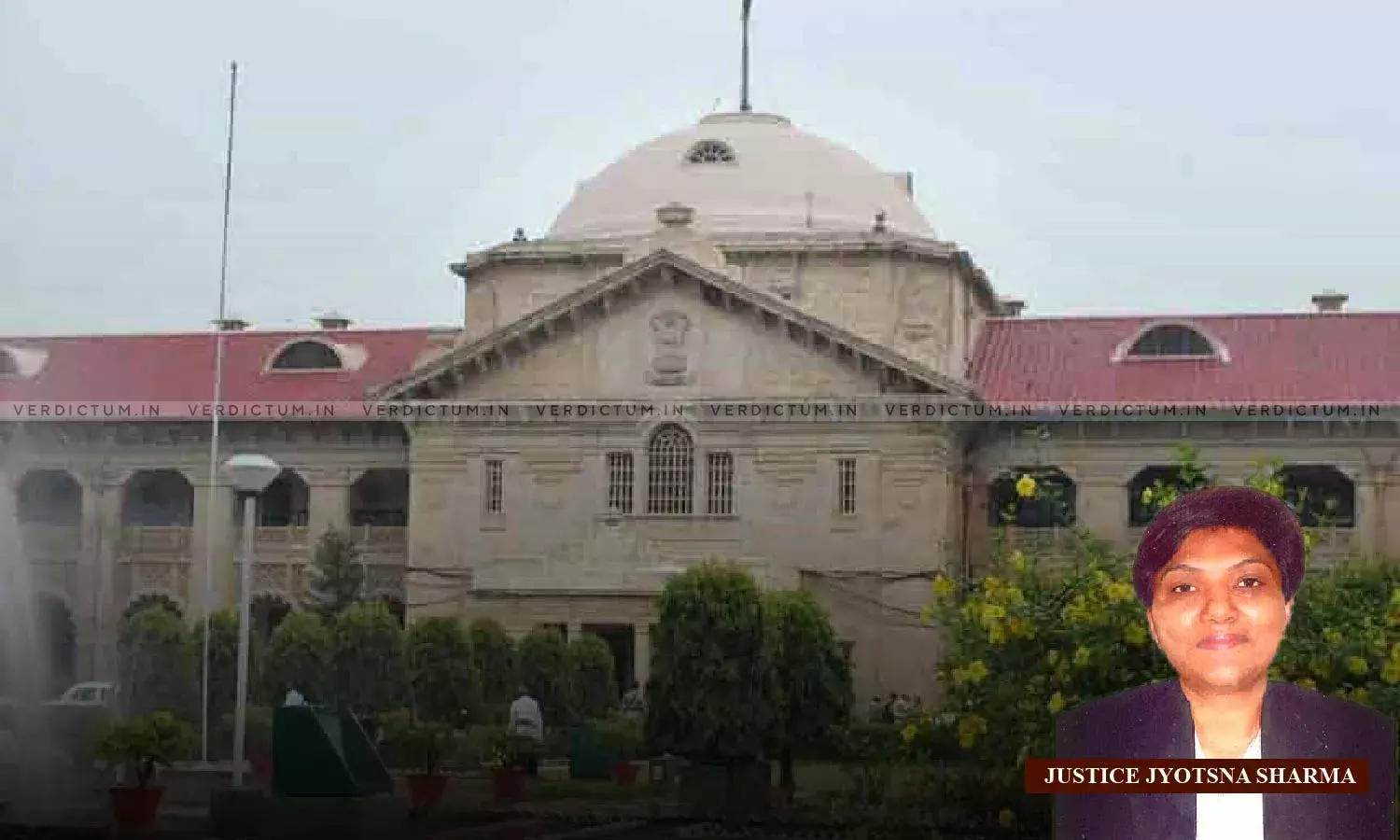Court Cannot Acquit Accused For The Sole Reason That Only One Witness Was Produced: Allahabad HC Orders Fresh Trial In 2001 Murder Case

The Allahabad High Court set aside the acquittal of an accused and ordered a fresh trial in a 2001 murder case.
The Court observed that a court cannot acquit an accused for the sole reason that only one witness has been produced.
The Bench remarked that although the trial court discarded the eye-witness testimony, it was not uncommon for a conviction to be recorded on the basis of a single eye testimony, provided it was reliable. Similarly, while pointing out that a Court cannot acquit an accused solely based on the testimony of a single witness, the court explained the need for meticulous consideration of such testimony when it is the sole evidence available. “But it cannot insist upon plurality of a witness.”
A Single Bench of Justice Jyotsna Sharma observed, “It is the duty of trial court to make every effort to disengage the truth from falsehood and to sift the grain from the chaff rather than to adopt an easy course of rejecting the entire prosecution case merely because there were some circumstances or embellishments. The powers of the court of revision are definitely limited, but this does not mean that in all the cases where acquittal has been recorded, the same shall not be interfered at, even though the judgment of the trial court suffers from glaring illegalities and infirmities.”
Advocate Arvind Srivastava III represented the revisionists, while AGA Ayush Mittal appeared for the opposite party.
The accused was charged under Sections 352 and 302 of the IPC for causing the death of a woman who wanted her share in the yield of crops in her village. Despite the presence of evidence such as the prompt filing of an FIR and the recovery of the murder weapon, the trial court acquitted Devendra Singh based on conjectures and gave the benefit of doubt to the accused, though there was no doubt regarding his guilt.
The High Court explained that “the trial court appears to have conveniently ignored the legal position that where eye-witness account is available, it is not at all necessary for the prosecution to prove the motive. At the same time, it may be mentioned that if motive forms part of the prosecution case, it may further fortify the same, but proof of motive is not indispensable.”
The Bench pointed out that the core value of the eye-witness regarding the incident was not appreciated by the trial court. The trial court even relied upon certain statements given under Section 161 Cr.P.C. when the law in this regard was well settled that any part of the statement given under the Section could not be used for any purpose at the trial court, except to contradict that very witness, in the manner provided under Section 145 of the Indian Evidence Act.
The Court remarked, “The principles and provisions of law have been totally disregarded. I find the judgment given by the trial court bordering on perversity and the interest of justice demands interference by this court of revision.”
Accordingly, the High Court allowed the revision.
Cause Title: Jag Mohan Singh & Anr. v. State of U.P. & Anr. (Neutral Citation: 2024:AHC:71334)
Appearance:
Revisionist: Advocate Arvind Srivastava III
Opposite Party: AGA Ayush Mittal; Advocate Vishnu Pandey

